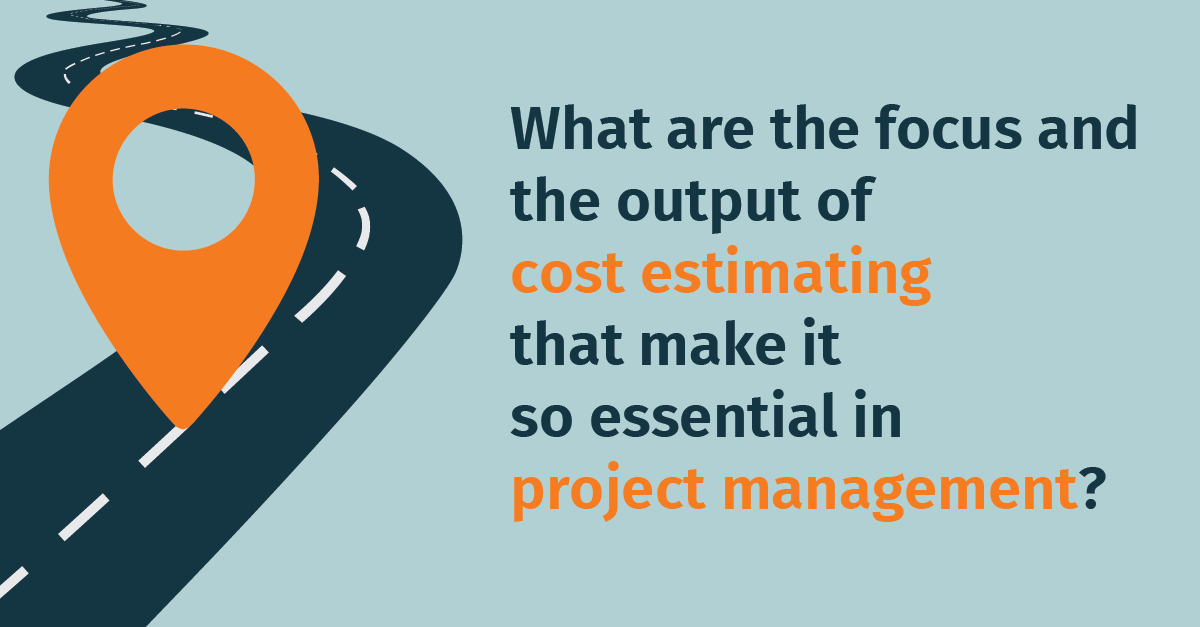Any project, big or small, or regardless of the industry, needs to be performed and delivered under certain constraints. Cost is one of those constraints that project management needs to effectively control. Cost can be the driving force or an impeding factor in determining the future of a project. Therefore, one can easily spot the need for applying thorough cost estimating processes and techniques to ensure that a project can be viable. What are the focus and the output of cost estimating that make it so essential in the project management process? And at which part of project management is it performed? To get a clear overview of the contribution of cost estimating in project management, let’s look into project management activities from a high perspective and dive into its fundamentals. Project management encompasses different knowledge areas, properly integrated and coordinated to ensure that a project meets the stakeholder’s expectations and is completed within a set timeframe and under a specified budget. The project management knowledge areas include integration and communication management, time management, quality management, human resource management, risk management and cost management. Cost management includes the processes required to ensure that the project is completed within the approved budget. It embraces activities such as resource planning, cost estimating, budgeting and cost control. These activities are repeated in a closed loop and take place during the whole project lifecycle. Cost estimation forms a pylon in the cost management process and as a result in project management. Being able to make accurate cost estimates is key to delivering a solid project plan. Cost estimating utilizes many techniques that translate the project scope into deliverables and develop an approximation of costs of the resources needed to complete project activities. Cost estimating input includes formed deliverable oriented work packages (usually in the form of a well-defined Work Breakdown Structure), historical data, chart of accounts, risks, duration of activities, resources and unit rates of resources. Based on this input, cost estimating utilizes estimating techniques and tools to produce an estimation of the costs of each project deliverable. Estimating techniques include analogies with similar projects, parametric modeling, detailed methods that estimate individual activities or work packages and roll up the costs to a project total or bidding analysis. The use of each technique mainly depends on the stage of the project that determines the level of scope definition and the availability of data. The output of the application of these techniques is a quantitative assessment of the likely costs of the resources needed to complete a project with a set of supporting details. That forms the basis for budgeting a project, namely allocating the cost to individual activities or work packages so that the project can officially begin. In addition to that, an accurate estimate forms the basis for developing a cost management plan and the baseline for controlling the costs during the project’s execution phase. The cost baseline will be used by cost control to measure and monitor cost performance on the project. No building can stand without proper foundation. Similarly, project management cannot lead to effective planning and control of a project if the baseline foundation has not been set. Cost estimating is an essential foundation to project management and should be properly integrated among other cost management activities. If you'd like to talk to someone about our project cost management software, Cleopatra Enterprise or Cost Engineering services, please contact us. Fundamentals of project management
Cost estimation is key to delivering a solid project plan
Cost estimating techniques
Conclusion
Blog
The key role of cost estimating in project management
26thJanuary

 Contact us
Contact us